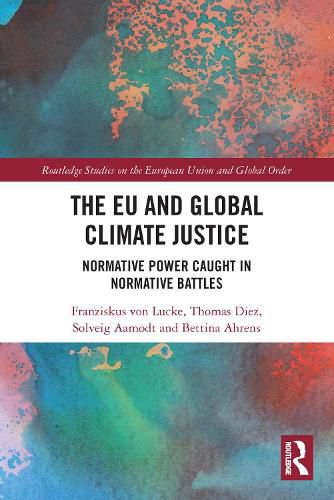Readings Newsletter
Become a Readings Member to make your shopping experience even easier.
Sign in or sign up for free!
You’re not far away from qualifying for FREE standard shipping within Australia
You’ve qualified for FREE standard shipping within Australia
The cart is loading…






This book examines the European Union (EU)'s contribution to the development of the global climate regime within the broader framework of global justice.
It argues that the procedural dimension of justice has been largely overlooked so far in the assessment of EU climate policy and reveals that the EU has significantly contributed to the development of the climate regime within its broader efforts to 'solidarise' international society. At the same time, the book identifies deficits of the climate regime and limits to the EU's impact, and explains why the EU policy towards global climate change has shifted over time. Finally, it argues that these policies should not be assessed in terms of being wholly positive or wholly negative, but that they are shot through with ambiguities.
This book will be of key interest to scholars, students, and practitioners of climate change, climate politics, and environmental and climate justice studies, and more broadly to EU Studies and International Relations.
$9.00 standard shipping within Australia
FREE standard shipping within Australia for orders over $100.00
Express & International shipping calculated at checkout
This book examines the European Union (EU)'s contribution to the development of the global climate regime within the broader framework of global justice.
It argues that the procedural dimension of justice has been largely overlooked so far in the assessment of EU climate policy and reveals that the EU has significantly contributed to the development of the climate regime within its broader efforts to 'solidarise' international society. At the same time, the book identifies deficits of the climate regime and limits to the EU's impact, and explains why the EU policy towards global climate change has shifted over time. Finally, it argues that these policies should not be assessed in terms of being wholly positive or wholly negative, but that they are shot through with ambiguities.
This book will be of key interest to scholars, students, and practitioners of climate change, climate politics, and environmental and climate justice studies, and more broadly to EU Studies and International Relations.